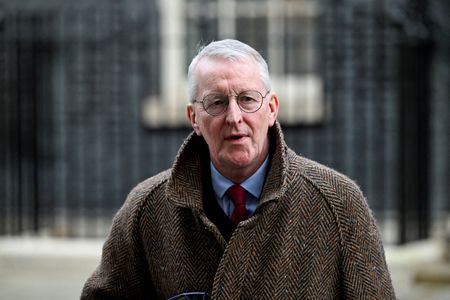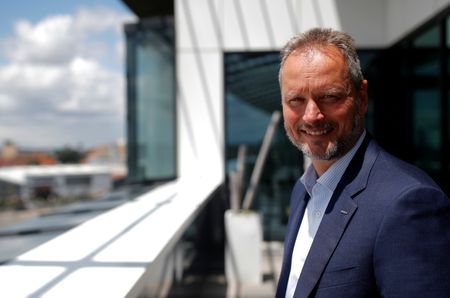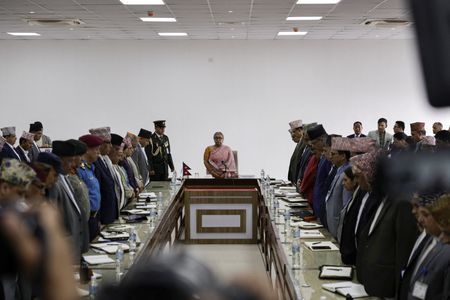BELFAST (Reuters) – The British and Irish governments will explore whether to have talks with paramilitary groups that are still active and involved in crime in Northern Ireland to encourage them to disband, Britain’s minister for the region said on Tuesday.
While the 1998 Good Friday Agreement largely ended 30 years of sectarian violence and led to the disarming of large Irish Republican and pro-British loyalist militant groups, splinter factions still engage in paramilitary and criminal activities.
The Independent Reporting Commission (IRC), which monitors paramilitary groups, said on Tuesday that such groups continue to exert control over some communities, including through intimidation, financial extortion and drug dealing.
It repeated a recommendation that the two governments, which are the guarantors of the peace deal, should directly engage with paramilitary groups. The governments agreed to appoint an independent expert to carry out a short scoping exercise to assess whether there is merit in such a formal process.
“I want to be clear that this is not the start of a formal process itself,” Britain’s Northern Ireland minister Hilary Benn said in a statement, adding that no financial offer will be made to groups in exchange for an end to violence.
Northern Ireland’s Justice Minister Naomi Long said she had no confidence in the proposal and that it risked undermining political and policing actions that are succeeding in delegitimising the harm the groups are causing.
“I think it is madness… I think it sets a dangerous precedent,” Long, the leader of the cross-community Alliance Party, told reporters.
“How would you feel if you were sitting in a community today with the boot of these individuals on your neck and the governments’ response to that was let’s go chat to them.”
Britain’s MI5 intelligence agency last year lowered the threat level in Northern Ireland from domestic terrorism to “substantial”, meaning an attack is likely, from “severe”, which meant an attack was highly likely.
(Reporting by Amanda Ferguson and Padraic Halpin; editing by Mark Heinrich and David Gregorio)









